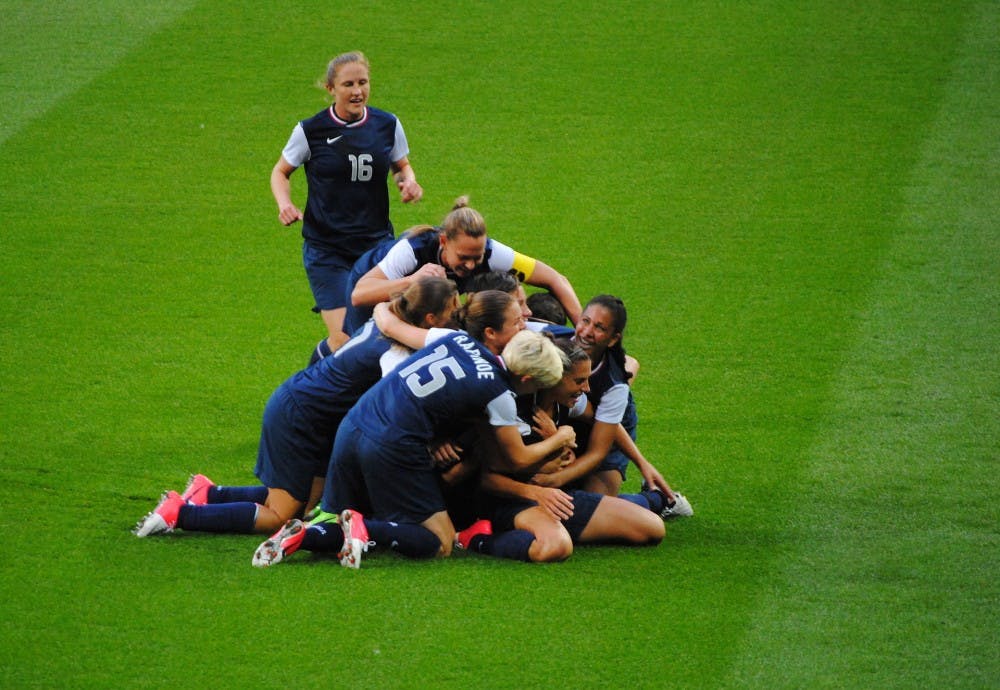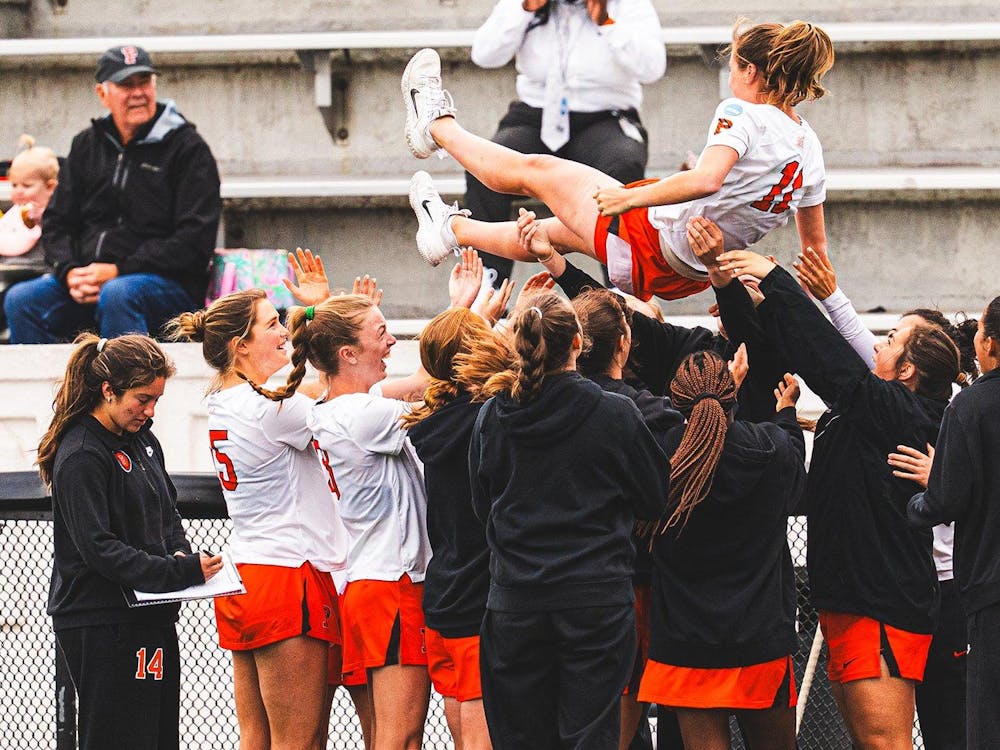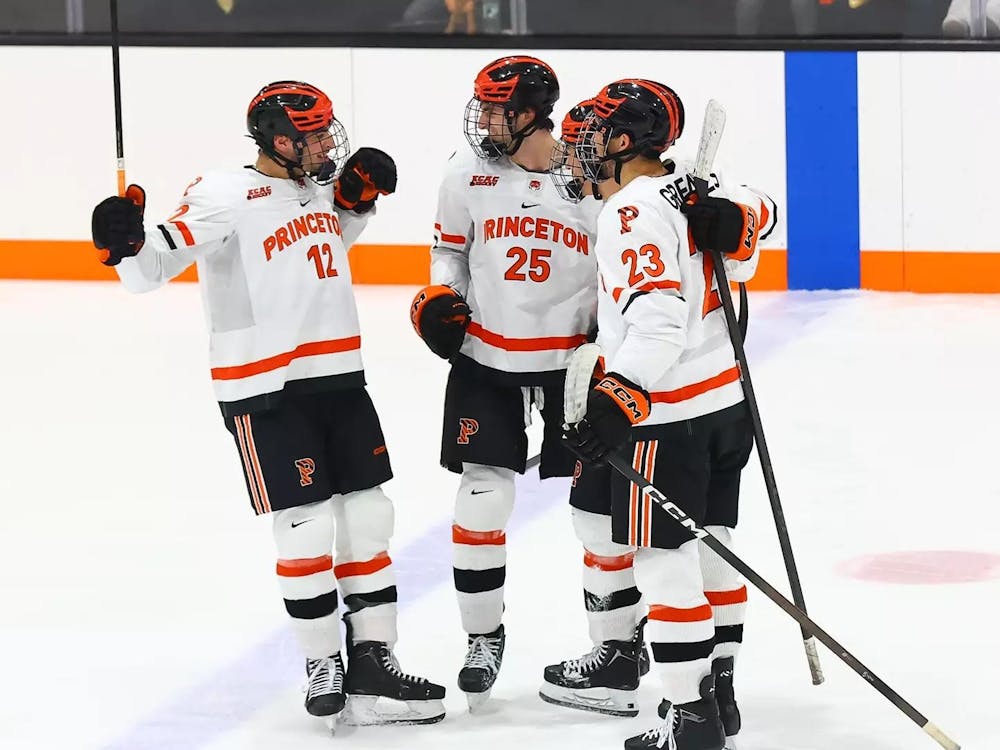It’s easy to say “equal pay for equal work.” The fact of the matter is that neither the work, nor the product of that work, is equal in U.S. Soccer. The women’s team plays more games, and wins more games (including more World Cups and Olympic championships), than the men’s team. Yet, the women’s national soccer team is paid far less for its victories.
The U.S. men’s team was paid more for qualifying for the 2014 World Cup than the women’s team did for winning it in 2015, a feat the women’s team has accomplished three times since the first Women’s World Cup in 1991. On an individual basis, a female national player might earn only 38 percent of what her counterpart on the men’s team would make per game. To fight this inequity, all twenty-eight members of the women’s team filed a gender discrimination lawsuit last month, arguing that the pay structure violated both the Equal Pay Act and Title VII of the Civil Rights Act.
Their complaints about equality in this sense do not just pertain to equal salaries and bonuses. The team has also expressed dissatisfaction in the inequality of playing surfaces, refereeing, flights, and payment for meals and accommodations. It is true that strides have been made in both accommodations and flights, but there is still a pervasive double standard, apparent even in players’ behavior. While male players are often encouraged to express their emotions during a game, women’s team goalkeeper Hope Solo was suspended for six months by U.S. Soccer after a loss to Sweden for calling the opposing team “a bunch of cowards.”
Teams around the world have joined the U.S. women’s team in protesting against unequal salaries and working conditions. The Spanish women’s team was able to oust its coach for poor performance, while several Brazilian players quit after their well-liked female coach was replaced by a male one. Elsewhere, the Nigerian women’s team staged a sit-in at its hotel to protest unpaid salaries and bonuses, even after winning the Women’s Africa Cup of Nations. Ireland’s and Australia’s female players either threatened to strike or actually did.
The current push for equality not only transcends borders, but also the wider world of sports. U.S. Women’s Hockey gold medalists have also protested unequal pay, and last summer, A’ja Wilson, the first overall pick in the 2018 WNBA draft, publicly protested pay inequality after LeBron James’ new contract was announced.
Compared to Deandre Ayton, the first pick in the NBA Draft, who is earning over $8 million this year, Wilson will only earn $52,564 in her first season. Although the NBA generates much more revenue than the WNBA, the WNBA only pays 20 percent of its revenue to players, while the NBA gives away half of its revenue to players.
The biggest victory came for the Norwegian women’s soccer team, in which the players were able to win the case for equal pay with the Norwegian men. That same month, however, Norway’s star player, Ada Hegerberg, was asked to twerk onstage after winning the Ballon d’Or, a title previously given to only the best male players, showing that while female athletes do receive recognition for their talents, they still face many obstacles like being asked to play into sexist roles.
There are still some complications in obtaining equal pay. The women are currently suing U.S. Soccer, but FIFA is the organization that determines how much men’s and women’s teams receive in bonuses for the World Cup, where the inequality is also vast. The women’s team is frustrated by the slow progress and the failure of U.S. Soccer to balance base salaries.

There is, however, hope, as the success of Norway’s team in receiving equal pay indicates that similar lawsuits could also achieve success. More importantly, by appealing to Title IX, Article VII, basic equality, and clear facts, the U.S. Women’s National Team could provide hope not only for themselves, but also for women’s teams across the United States and abroad.









